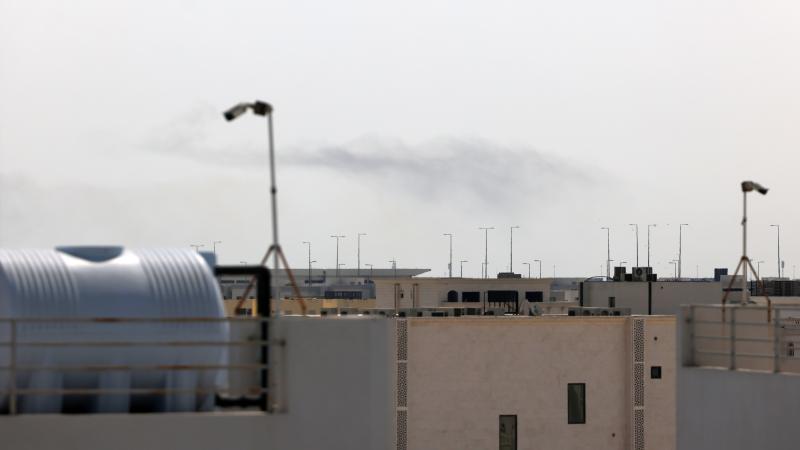Flight attendants sue Alaska Airlines alleging religious discrimination
Two were fired over comments posted in a community forum about the “Equality Act,” a controversial LGBTQ bill.
A pair of flight attendants are suing Alaska Airlines, claiming they were discriminated against because of their religious beliefs when they were fired.
The controversy began when Lacey Smith and Marli Brown posted in a community forum about the “Equality Act,” a controversial LGBTQ bill. Smith and Brown say Alaska Airlines announced its support for the legislation and told employees they were welcome to comment, but Smith's and Brown’s comments landed them in hot water.
Smith wrote on the forum asking, “As a company, do you think it’s possible to regulate morality?” Brown posted a question asking, “Does Alaska support: endangering the Church, encouraging suppression of religious freedom, obliterating women rights and parental rights?”
Smith and Brown say they were both investigated and later fired and were told their questions were “hateful” and “offensive.”
The pair then reported the incident and filed charges of religious discrimination to the Equal Employment Opportunity Commission, which has now given them authorization to file a lawsuit.
“Alaska Airlines ‘canceled’ Lacey and Marli because of their religious beliefs, flagrantly disregarding federal civil rights laws that protect people of faith from discrimination,” said Stephanie Taub, senior counsel for First Liberty Institute, the group representing Smith and Brown. “It is a blatant violation of state and federal civil rights laws to discriminate against someone in the workplace because of their religious beliefs and expression. ‘Woke’ corporations like Alaska Airlines think that they do not have to follow the law and can fire employees if they simply don’t like their religious beliefs.”
Alaska Airlines is based in SeaTac, Washington, and is the sixth largest airline in North America.
The flight attendants’ legal team argued in its filing that Alaska Airlines violated Title VII protections against discrimination based on, among other things, religion.
“Under Title VII, it is an unlawful employment practice for an employer ‘to discharge any individual, or otherwise to discriminate against any individual with respect to his compensation, terms, conditions, or privileges of employment, because of such individual’s ... religion,’” the filing said, pointing out that religion is defined as “all aspects of religious observance and practice, as well as belief.”
The filing also argues that the efforts to have an inclusive culture resulted in the opposite effect.
“Despite Alaska Airlines’ claimed commitment to an inclusive culture and its frequent invitations to employees to dialogue and express a diversity of perspectives, Alaska Airlines created a work environment that is hostile toward religion, and AFA reinforced that company culture,” the filing reads. “Alaska Airlines and AFA cannot wield their social advocacy as a sword to unlawfully discriminate against religious employees and instead must remain mindful of their legal obligation to ‘do the right thing’ towards all employees, including religious employees. The Court must hold Alaska Airlines and the AFA accountable for their discrimination.”
First Liberty’s legal team said this case could send a message to other employers.
“Employees should be free to respectfully talk with each other about their different beliefs and perspectives without fear of being fired,” Taub said. “The case has the potential to send a message to employers across the country that they cannot discriminate against employees of faith.”
The flight attendants have also filed suit against the Association of Flight Attendants union, which they say failed to defend them when they were fired.
“To make matters worse, their Union not only failed to vigorously represent and defend Marli and Lacey against the Airline’s religious discrimination but also discriminated against them because of their religious beliefs and actively undermined their ability to assert their federal and state protections against such discrimination,” the filing said.















